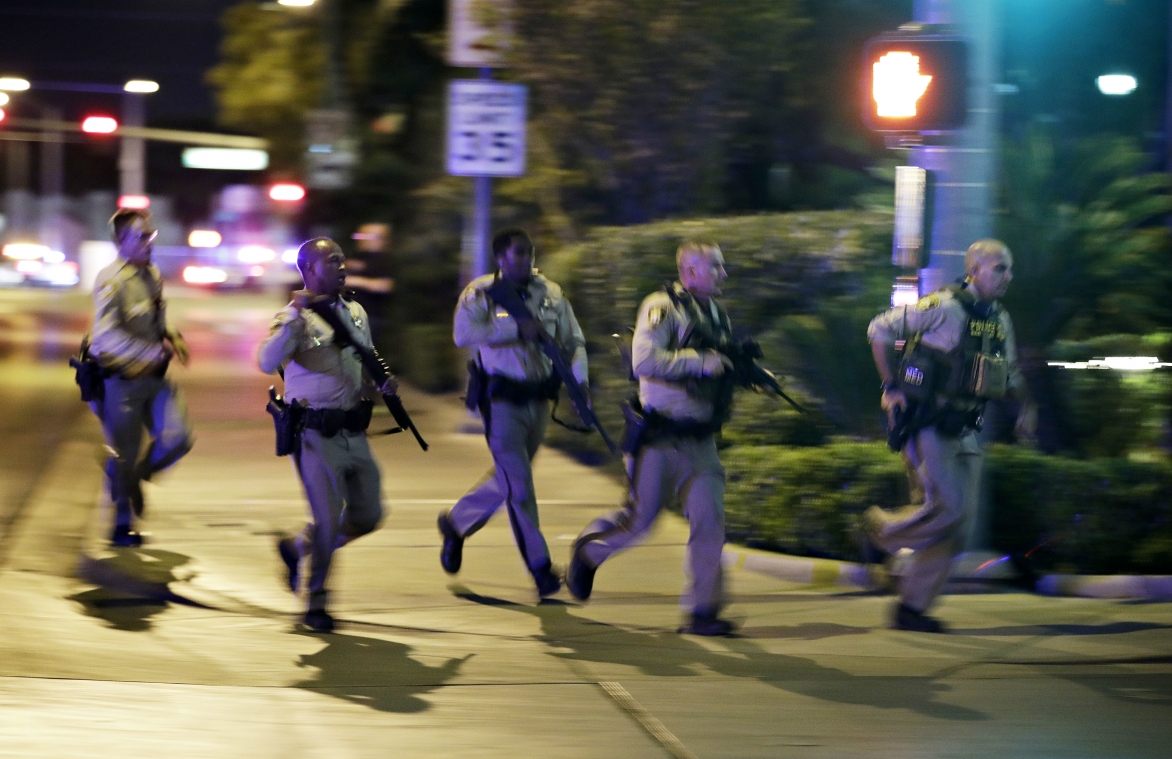Call it the ‘fog of breaking news.’
Every veteran reporter knows that early reports from any major incident are always fragmentary, confused, contradictory, exaggerated or even outright false.
That was on clear display this morning in Las Vegas, from the earliest cable news bulletins to social media taking up the charge before the facts were known.
Someone who should have known better, columnist Wayne Allyn Root, tweeted this to his 110,000 followers at midnight Vegas time, before almost anything was known:
“Shooting victims everywhere, Shots fired everywhere at Mandalay, Trop, Bellagio, NYNY, Luxors, Hooters, Stratosphere. This is real thing, Muslim terror.”
And a minute later, Root tweeted this:
“This is real thing. Clearly coordinated Muslim terror attack. PRAY for our Vegas police. PRAY for victims. VERY bad. Awful.”
Root backtracked/explained later that both tweets were based on reports from his sources on the ground. “I report as I hear it,” Root said. And indeed, there were reports of gunfire all over Las Vegas.
But a trained reporter usually knows that reports of multiple gunmen need to be checked out; and certainly reports of a Muslim link were not based upon anything but speculation. Root said it was his “first thought.”
Except you don’t report your “first thought.”
At the same time, after Marilou Danley’s name emerged, there were reports all over social media that a man named Geary Danley, who had anti-Trump feelings, was the shooter. Again, false. He wasn’t the shooter at all.
Other false reports: MSNBC’s Pete Williams said he’d been told hotel guests saw Marilou Danley at the hotel with the alleged shooter, Stephen Paddock. Except, no, police said she was in another country. CNN said Paddock was shot by police. No, he shot himself, the sheriff said later. Etc.
AP tweeted a BREAKING NEWS alert: Although no evidence, ISIS is claiming Paddock is a recent convert to Islam.
The AP tweet led to this from CNN media critic Brian Selter: “Maybe news outlets should wait for a shred of evidence before passing along a publicity-seeking group’s claim of responsibility?”
And this just in: The FBI agent in charge in Las Vegas said they have found “no connection” to any international terror group.
Now maybe, in the end, we’ll find that Paddock was an Islamic follower. They are still searching Paddock’s other property. But so far, there is no credible evidence (except maybe the deed itself. Again, the “first thought syndrome.”)
But for those who remember the 1996 Olympics bombing in Atlanta, first the suspect was a shadowy Jordanian said to be flying home. Then it became poor Richard Jewell, who was eventually exonerated. The true bomber was radical Eric Rudolph. No one got that story right for years.
Now in the world of anything-goes social media, the stakes are even higher.
So should everything reporters hear or discover be withheld until an “official news conference”? Of course not. Police are often the biggest purveyors of information that doesn’t pan out. Reporting should always be skeptical and aggressive.
And a “rolling” news story, with changing facts, theories floated, and viewers riveted, certainly is a shared experience with truth the final goal.
There’s still plenty to ferret out: A strange eyewitness account says a woman at the concert (initially said to be Marilou), yelled that concertgoers were all going to die. Many loose ends remain.
But reporters should realize the flimsy nature of statements from shaken witnesses, self-serving political operatives and those whose “first thoughts” lead to claims without facts. Caution, restraint and common sense should prevail. Even when, and maybe especially when, reporting in the face of unbelievable horror.
David Colton is former executive editor of USA TODAY.

